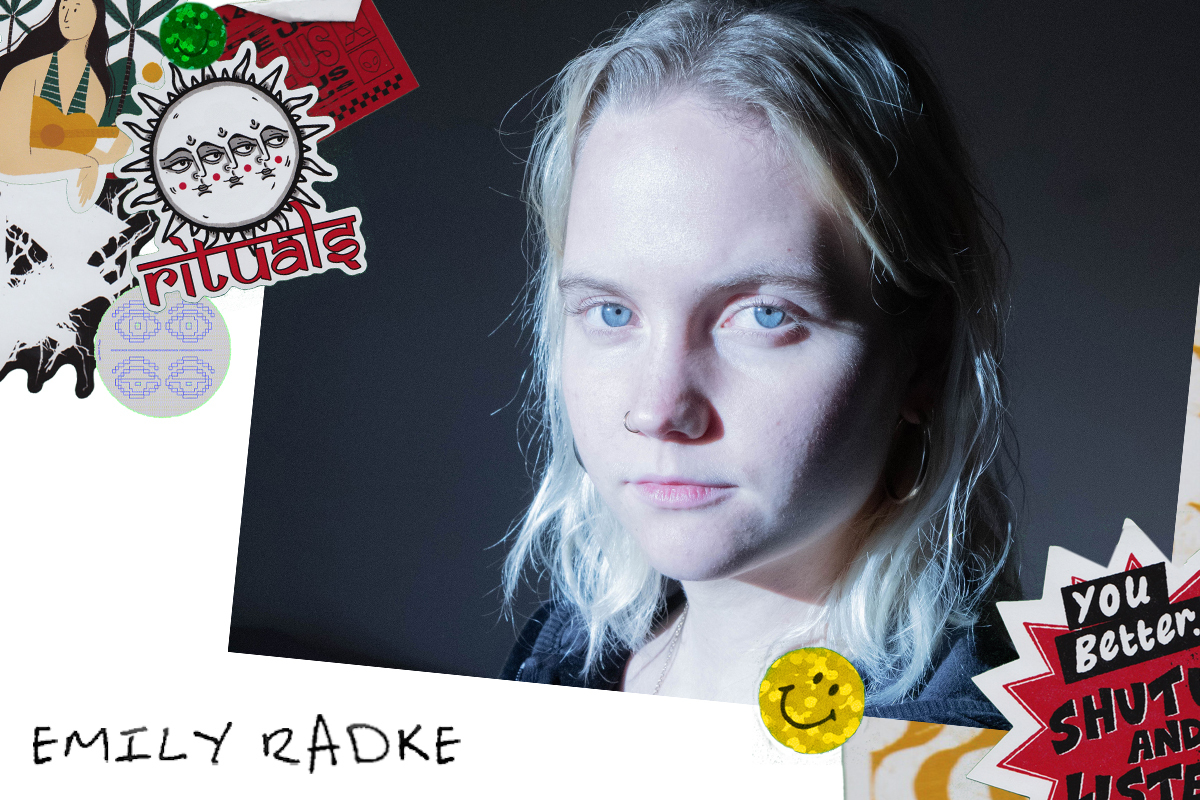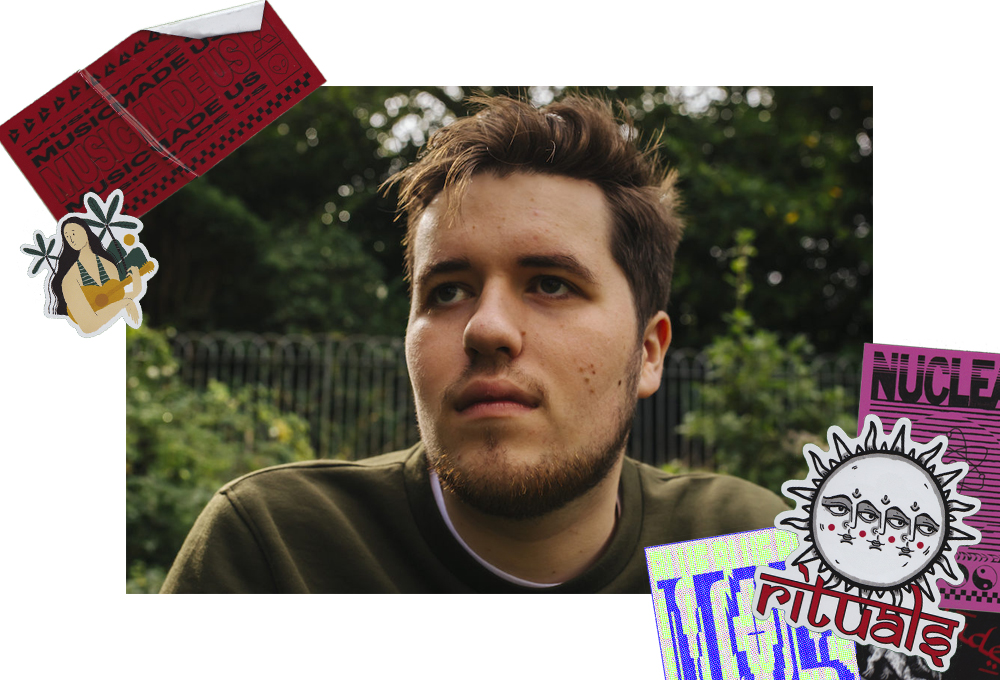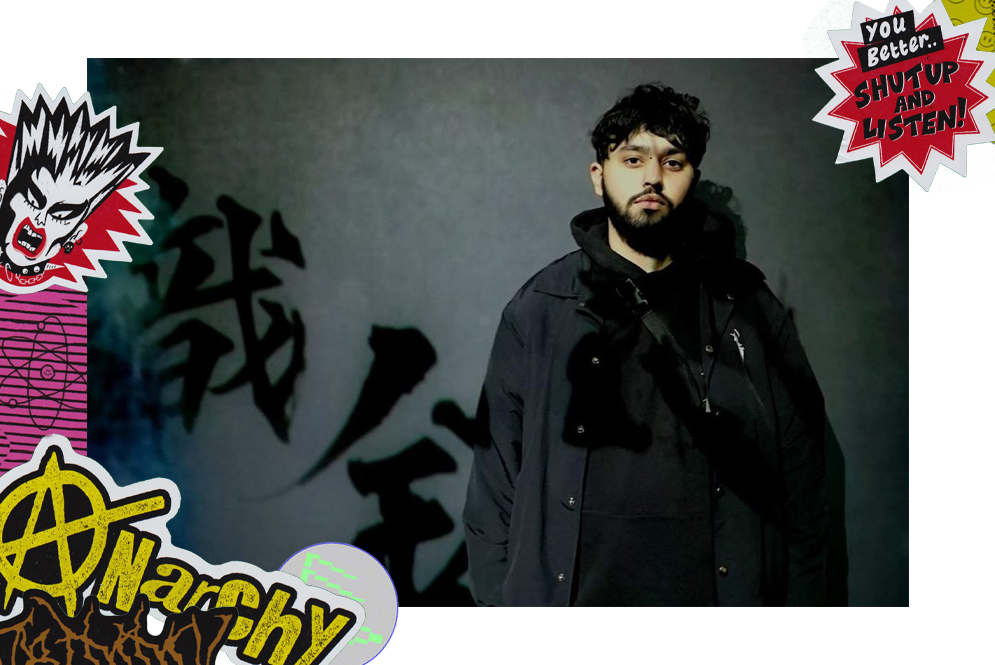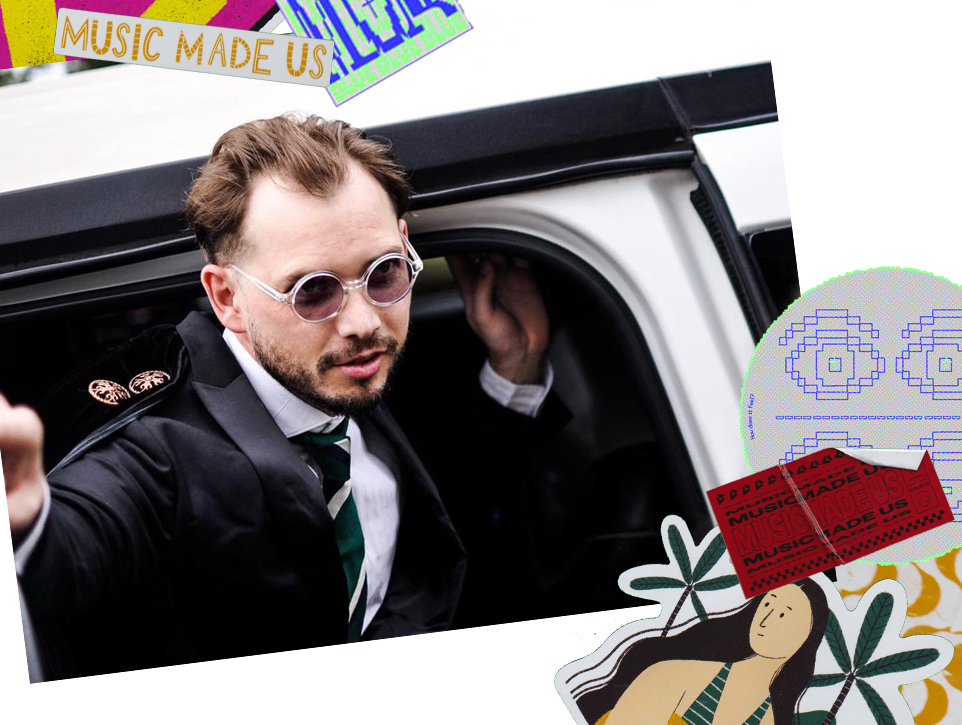As part of our Music Made Us campaign, Emily Radke, a first-year songwriting student, explores her musical journey. Telling us about her love for Rosalía, Dublin’s rich musical heritage, and what she hopes the future of the industry will look like.
I have always admired people who dare to use fantasy to think beyond what is considered normal. I guess it is these people who have the power to create change. They might also be the happiest people, as they allow themselves the freedom to fully flourish in all the colours they can see. This is what art is about, right? The attempt to make your inner world visible for entities who cannot look through your eyes.
One of my favourite examples to give here is Rosalía. She is a Catalonian singer-songwriter who fuses traditional flamenco with other musical genres, such as trap or classical music, as well as with other art areas. In her second album, she unites literature and music, bringing life to a toxic love affair from a 13th-century novel. I am deeply in love with the concept she creates: music as a meta-cultural synthesis of arts.
“Authenticity is the essential ingredient in making music.”
People like Rosalía (whose art seethes with individuality) highlight the importance of being who you want to be. For me, authenticity is the essential ingredient in making music. It means self-acceptance, and I guess this is still one of the biggest struggles in our modern society with all its pressures and demands. It’s so important to nourish the idea of acceptance and to be proud of who you are.
Fostering a Passion for Music in Dublin
I was born and raised in Berlin and only moved to Dublin at the end of September last year to start my studies here at BIMM Institute. Right now, Dublin is quite sleepy and crumpled, but I was lucky to experience the city’s real soul before Covid led it into hibernation.
Back then, Dublin seemed like a never-ending musical playground to me, a sparkling child full of energy and always cheerful. There is a certain magic about music here. I sometimes have the feeling that Irish people have a uniquely pure and primal connection to music as if they had a natural empathy towards it. Dublin is a very inspiring little haven in full blossom, full of colours, sounds, and stories.
The music industry in Ireland is tiny, and most people who work in it know each other. It’s very family-like. I consider this a chance for new emerging artists because once someone discovers you, it is relatively easy to get introduced to other industry players. Or that’s at least how I imagine it to be.
When coming here, I learned that the industry focuses a lot on supporting Irish acts, and I think it is a beautiful idea to hold up one’s local culture. Nevertheless, as someone who does not have Irish nationality, it makes things a little harder for me.
Opening Up More for the Non-Mainstream
I would love to see people opening up more for the non-mainstream. Although our society is already showing broader listening habits and accepting a wider horizon of musical innovations, there is always a potential for giving more freedom to music.
This connects again to fantasy and authenticity. Thinking visually or in new structures that go beyond the typical verse-chorus pattern, for example, creates a new space for the content that the artist wants to get across. There are millions of unexposed ways of supporting a song’s core, and I am convinced that exploring these will enrich the music culture immensely.
“Music is a unique possibility to break away from the physical entity we are tied to.”
There is one more thing which I particularly care about. Music is a unique possibility to break away from the physical entity we are tied to. It opens that fragile space of satisfaction where everything is more intense, drowning somewhere between feeling and forgetting, and it has the power to take other people into this state of self-reflective trance as well.
Music is interpersonal. Music is hope and deliverance; it’s your mother’s smell when coming home after a long time. It is freedom, and as a singer-songwriter, you have the power to help people breathe that precious air by sharing your musical moments, giving others the chance to get in touch with the music on their own. Music has tremendous social potential, and I would love artists to exploit it in its entirety.
A Slow Change of Consciousness
I know that there are still tremendous inequalities regarding the diversity of crucial role holders in the music industry; it makes me angry. I wish that people would finally become aware that quality and value have nothing to do with gender, ethnic origin, religion, sexual orientation, social background or any other trait for which people get discriminated against.
I think that there is a slow change of consciousness in society’s mind. Nevertheless, we still find ourselves instead in the state of a-sun-tickled-nose rather than a real awakening; change is happening too slowly and not efficiently enough. Many talented women are receiving more and more recognition or work successfully in the industry, so the process cannot be stopped anymore. I have never experienced sexism towards myself or other female artists around me in the industry, which might already be a sign of advancement.
Our Music Made Us campaign is told through the students, graduates, journalists, experts and passionate people who have been shaped by music. Discover their stories here.



